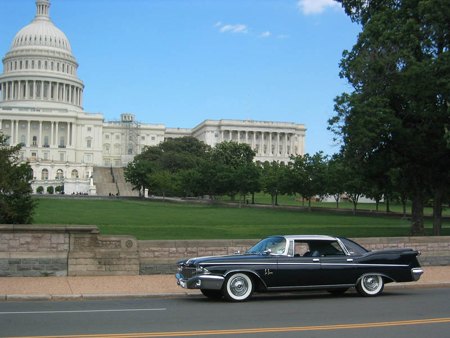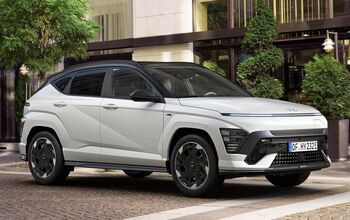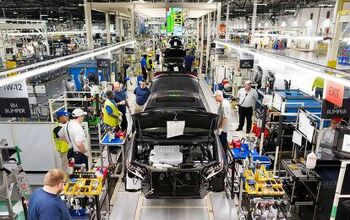Detroit CEO's Hit the Hill to Chill CAFE Regs
Now that Detroit (plus Toyota) has decided that some hike in the federal Corporate Average Fuel Economy standards is better than a BIG hike, Detroit's heavy hitters have hit the nation's capitol seeking support for their position. WSBT reports that Ford Boss Alan Mulally met with [union-supported] House Speaker Nancy Pelosi and her cohorts. Big Al pronounced that Ford is "absolutely committed to providing our customers with vehicles they really want and value. That is why improving the fuel economy of our vehicles and securing energy independence is important and that is why we fully support increases in CAFE." The Associated Press reports that GM CEO Rick Wagoner schmoozed with officials at the White House National Economic Council, the National Highway Traffic Safety Administration and the Environmental Protection Agency. Wagoner poo-poohed CAFE, asserting that the country would be better off developing alternative fuels and advanced batteries for plug-in hybrids and electric vehicles. “Our only hope is that the policies we pursue in the next 10, 20, 30 years, I hope that we end up with better results.” Meanwhile, some of the proposals “look like a stretch and look tough” and others “don’t look achievable.” Chrysler's Nardelli kept a low profile and ToMoCo was nowhere to be seen. But all three U.S. execs got a tongue lashing at a Democratic party luncheon. Sen. Byron Dorgan (D-N.D.) declared that Motown had resisted past CAFE increases and was now running advertising saying a Senate proposal would “take your pickup truck away.” “I think the issue is over — I think you’ve lost that issue. I think your position is yesterday forever." Maybe, maybe not.
More by Robert Farago


































Comments
Join the conversation
I do some work with Auto Alliance, and I just want to set the record straight about CAFE standards: We are for better fuel economy. Everyone is for better fuel economy. But there is a right way to do and a wrong way. The Senate bill lumps cars and trucks together and mandates a swift and painful hike for the auto industry. On the other hand, the Hill-Terry bipartisan bill recognizes that Mini Coopers and Ford F-150's preform different tasks and should be in different categories. It also proposes hikes that are tough but fair.
Hey Sunnyvale, I think you make a good point, the American public simply can't afford to continue paying so much for gasoline. However, I think the majority of the people out there are not going to trade in their car or drive less, they will just continue taking the hit to their wallet. I mean, I haven't seen a shortage of Hummer's on the road this summer just because gasoline was up to above 3 bucks a gallon in my area. Here's the thing, eventually consumers will change, they will trade in their old cars for new and when they do the CAFE standards will ensure that the new cars that will populate the roads of the future will be environmentally more sound. 35 mpg by 2020 is not an impossibility and combined with the other standards in the proposed energy bill could make a real difference for our future. I invite you to check out my coalition's petition at www.energybill2007.org. We have a chance to make a big difference here and I think we should try to persuade Congress to give it the best shot and not be affected by the Detroit big shots.
Dani, If I had better fuel economy, wouldn't I drive MORE? I have a 1990s Jeep that I'd like to trade in for a more fuel efficient car. But when I do, I'm going to be inclined to drive more because I'm saving more money. The point I'm making is that CAFE is a pretty flawed system. Sure, raising fuel economy is a good idea, but to think it's the catchall solution is a bit naive. I encourage you to check out http://www.drivecongress.com for some alternative solutions.
Oh Muskie, we meet again. I have to argue with you on the point of driving more because you feel like you are saving money. I really don't think that people buy fuel efficient cars and start planning road trips that weren't originally on the agenda. I drive when I need to get somewhere and unfortunately no matter how fuel efficient my car is or is not it doesn't change the amount of places I need to get to. I don't think I said that fuel economy was a catchall solution. What I do believe is that it is a step in the right direction and the bigger the step the better. The energy bill which car companies are trying to undermine by lessening the standards it calls for really has a chance to make a difference on more levels than just fuel economy. I would urge people who are interested in making a change for the better to visit: www.energybill2007.org.